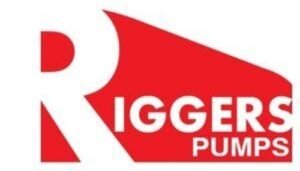Advantages of using High-pressure cleaning for Earth-moving Equipment, particularly in industries like construction, mining, and agriculture, where these machines are exposed to harsh environments. Regular cleaning helps maintain equipment performance, reduces wear, and improves safety.
1. Prevents Equipment Wear and Tear
- Advantage: High-pressure cleaning removes dirt, mud, and debris that can accumulate in critical areas of the equipment, such as joints, hydraulic components, and moving parts.
- Benefit: By keeping these parts clean, high-pressure washing reduces friction and wear, preventing damage and prolonging the life of components like bearings, seals, and hydraulic cylinders. This lowers maintenance costs and reduces the likelihood of mechanical failure.
2. Improves Equipment Performance
- Advantage: Earth-moving equipment, such as bulldozers, excavators, and loaders, can experience reduced efficiency when caked with dirt, mud, or debris. High-pressure cleaning ensures that the equipment remains free from obstructive material.
- Benefit: Clean equipment runs more efficiently, with better fuel consumption and optimal performance. Removing dirt and buildup also ensures that critical components like cooling systems and air intakes function properly, preventing overheating or reduced power output.
3. Reduces Corrosion and Rust
- Advantage: Earth-moving equipment is often exposed to harsh environments, including mud, salt, chemicals, and moisture. These elements can lead to rust and corrosion if not removed regularly.
- Benefit: High-pressure cleaning effectively washes away corrosive elements, helping to prevent rust and corrosion, particularly in vulnerable areas such as the undercarriage, hydraulic lines, and metal surfaces. This helps to extend the lifespan of the equipment and keeps it in better condition.
4. Enhances Safety
- Advantage: Dirt and debris buildup can affect the functionality of controls, visibility, and moving parts, potentially leading to accidents or equipment malfunction. Slippery surfaces and obstructed access points can also be hazardous for operators and technicians.
- Benefit: High-pressure cleaning removes dirt and grime from controls, handrails, steps, and windows, improving visibility, traction, and accessibility. Clean equipment ensures that moving parts work smoothly, reducing the risk of accidents or injury.
5. Easier Inspections and Maintenance
- Advantage: Accumulated dirt and mud can hide cracks, leaks, and wear in equipment, making it difficult to perform thorough inspections and maintenance.
- Benefit: High-pressure cleaning makes it easier to inspect equipment, as clean surfaces allow for the detection of early signs of damage like cracks, fluid leaks, or worn parts. This facilitates preventive maintenance, reducing the chances of unexpected breakdowns and extending the operational life of the machinery.
6. Increases Productivity by Reducing Downtime
- Advantage: Regular high-pressure cleaning helps prevent component failure and operational issues that result from excessive dirt buildup, thus reducing unscheduled downtime.
- Benefit: Clean equipment is less likely to break down, meaning fewer interruptions to operations. This enhances productivity and ensures that the equipment remains operational for longer periods without requiring emergency maintenance.
7. Complies with Environmental and Regulatory Standards
- Advantage: Many industries require earth-moving equipment to be cleaned before leaving construction or mining sites, especially in environmentally sensitive areas. High-pressure cleaning helps to remove contaminants like oils, grease, and chemicals.
- Benefit: High-pressure cleaning ensures compliance with environmental regulations related to the transport of dirty or contaminated machinery, reducing the risk of fines or penalties. It also helps prevent the spread of contaminants from one site to another.
8. Prevents Overheating
- Advantage: Dirt and mud buildup on the radiators, engine components, and cooling systems of earth-moving equipment can cause the system to overheat, leading to mechanical failure.
- Benefit: Regular high-pressure cleaning keeps cooling systems clear of obstructions, ensuring proper airflow and preventing overheating. This helps the equipment maintain optimal operating temperature, reducing wear on engine components and improving performance.
9. Preserves Resale Value
- Advantage: Equipment that is regularly cleaned and well-maintained will hold a higher resale value when it comes time to sell or trade in the machine.
- Benefit: High-pressure cleaning ensures that the equipment looks visually appealing and operates smoothly, increasing its resale value and making it more attractive to potential buyers. Clean equipment also shows a history of proper care, which is appealing to second-hand buyers.
10. Faster and More Efficient Cleaning Process
- Advantage: High-pressure cleaning is a quick and efficient way to remove dirt and grime from large equipment, compared to manual scrubbing or traditional cleaning methods.
- Benefit: The high pressure ensures that even hard-to-reach areas and heavily soiled parts are cleaned thoroughly in less time, allowing equipment to be cleaned faster and returned to service without significant downtime.
11. Removes Hazardous Materials
- Advantage: Earth-moving equipment can come into contact with hazardous materials, such as chemicals, oils, and contaminated soil, especially in mining and industrial environments.
- Benefit: High-pressure cleaning helps remove these hazardous materials, ensuring the safety of workers who service the equipment and preventing environmental contamination when moving equipment from site to site.
12. Reduces Costs Related to Premature Failure
- Advantage: Dirt, mud, and debris can cause premature wear on critical components such as hydraulic hoses, pistons, and moving parts.
- Benefit: By regularly cleaning the equipment, you reduce the risk of component failure caused by wear and contamination, thus lowering the overall maintenance and replacement costs.
Conclusion
High-pressure cleaning is essential for maintaining the performance, longevity, and safety of earth-moving equipment. It prevents the buildup of dirt and debris that can cause wear, overheating, and corrosion, while also improving operational efficiency and safety. With regular high-pressure cleaning, equipment experiences less downtime, performs more efficiently, and holds its resale value better, all of which lead to lower maintenance costs and increased productivity in demanding environments like construction, mining, and agriculture.

